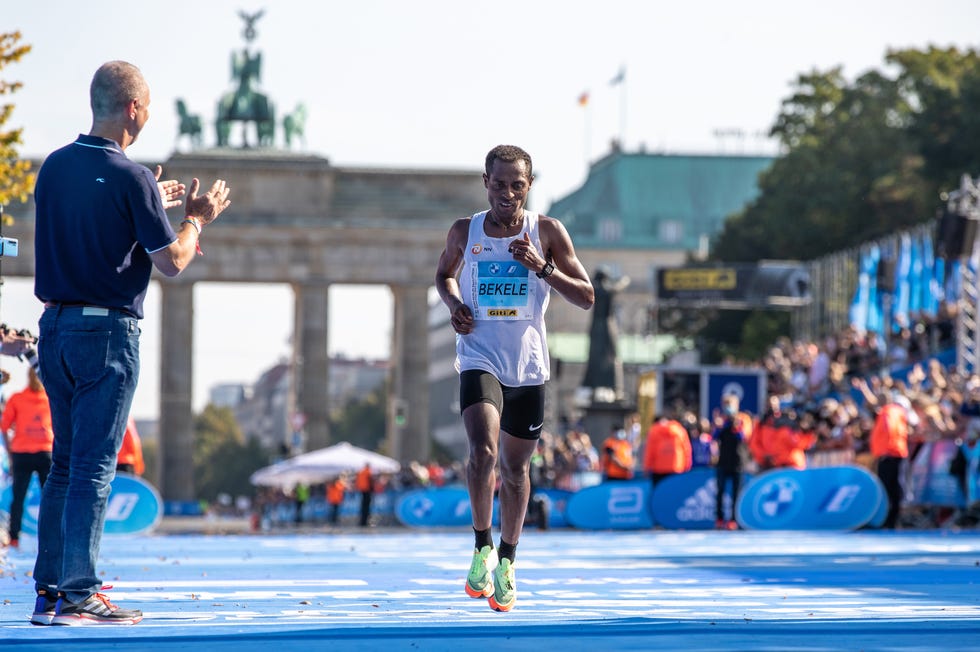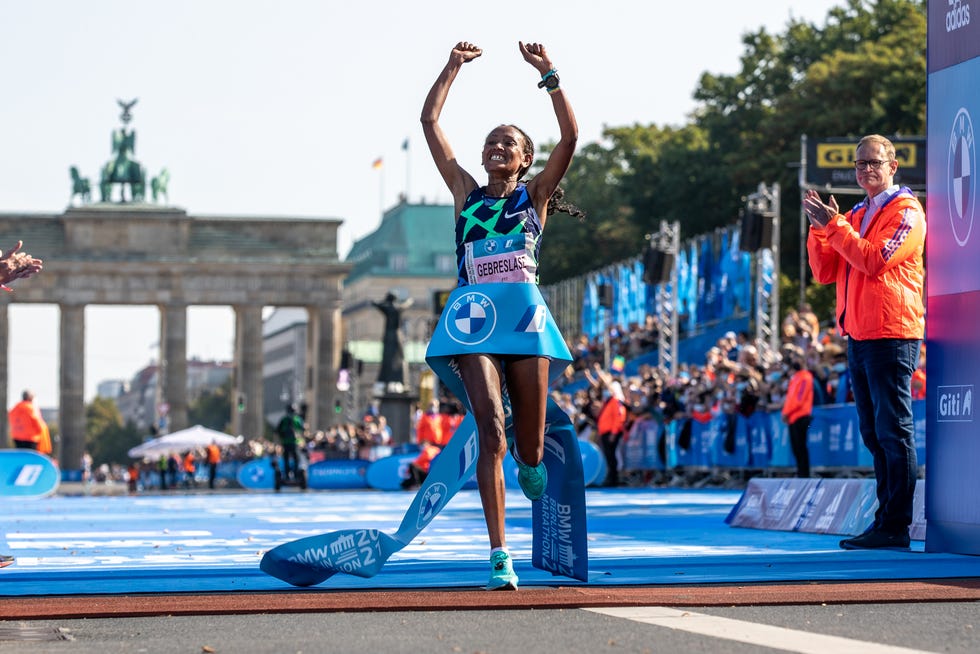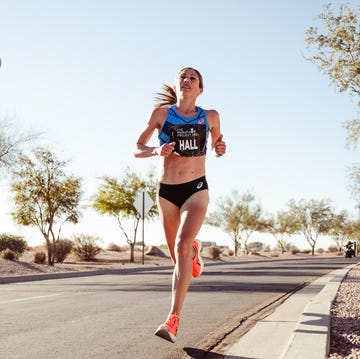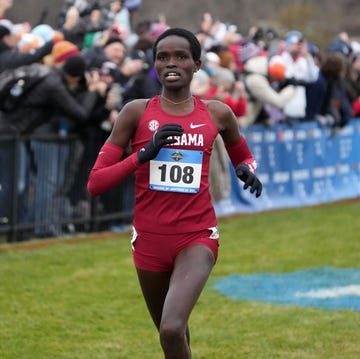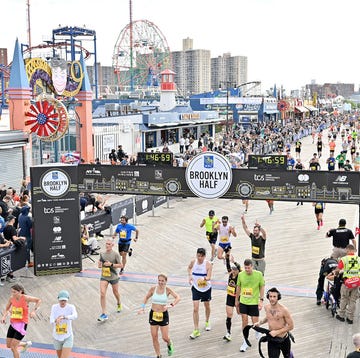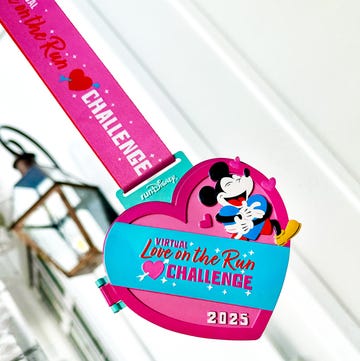Complete race results Other Hearst Subscriptions produced a series of firsts: For Gotytom Gebreslase, her debut marathon was a winning one, the 26-year-old Ethiopian taking victory in the women’s race in 2:20:09.
For Guye Adola, the men’s race brought his first ever marathon victory, the 30-year-old Ethiopian best surviving a grueling war of attrition to win in 2:05:45.
→ Sign up for Runner’s World+ to keep up with all of the latest pro racing news 🏅
And for distance-running great Kenenisa Bekele, who was stepping back into racing after 18 months away, he finished third in 2:06:47—a solid if unexceptional first leg of an ambitious fall marathon double for the 39-year-old Ethiopian. He plans to also race the packed fall marathon season CA Notice at Collection.
The touted world record attempt in the men’s race fell to pieces; Adola’s 2:05:45 was the slowest winning time in Berlin since 2009, and the mark isn’t even among the top 60 times in the event’s history.
Part of that was because of the weather; the sun beat down throughout the race, and temperatures climbed from 16°C/60°F to 21°C/69°F. But the chief reason was a first-half split that bordered on madness: 60:48. Never before had the opening half of a marathon been run so fast. When four athletes crossed the halfway mark behind pacemakers, it was clear the later miles would bring either something truly historic or something gruesome for the runners at that pace. In the end, it was the latter.
The target halfway split was 61:00, which is exactly what Bekele hit. The three-time Olympic champion backed off the pace at 18K as the three pacemakers defied their instructions and pushed things even faster out front. They split a whopping 18 seconds quicker than Kipchoge ran when he set the How to Run Your Best Disney Race.
At that point Adola and his fellow Ethiopian Tesfaye Lencho, along with Kenyans Abraham Kipyatich and Philemon Kacheran, were all throwing caution to the wind, but their bravery soon began to look like recklessness. The 10K splits told the story of the death march the race became: 28:47, 28:50, 30:11, 31:20.
Despite all the advances in super shoes and hydro-gel technology in recent times, some of the world’s best were out on their feet in a punch-drunk fashion during the closing miles that seemed a throwback to a bygone era.
Bekele was among them, the Ethiopian having nothing left to offer as he approached the finish. “It was not evenly balanced,” he said of the pace. “Halfway very fast, second half was a lot slower. That showed everybody die.”
Bekele had closed the gap on the leaders by 25K and with the world record still in reach at that point, he ushered his rivals to go with him and push the pace. When there was no response, he soon began to back off, racing solely for the win.
At 30K Bekele seemed in command up front with just Adola and Kacheran alongside, but by 35K, the on November 7 was sending out the distress signals.
As Bekele went for his energy drink at 35K, Adola opened an advantage that continued to grow in the miles that followed, but then, from nowhere, along came Kenya’s Bethwel Yegon, who had a previous best of just 2:08:18 and who passed halfway 1:26 behind the leaders. Yegon first passed Bekele to move into second and then reeled in Adola, but the 28-year-old could never open a lead once he got to the front. Adola fought back, edging into a small lead as he approached 40K.
Adola wasn’t speeding up at that point, simply fading a little less than everyone else, and his advantage grew as he ran under the Brandenburg Gate toward the finish.
“I didn’t think I would win,” Adola said in his postrace press conference. Adola ran 2:03:46 to finish second to Kipchoge in the 2017 Berlin Marathon—experience which proved valuable on Sunday. “Four years ago I was number two and I thought I could win this race one day. Today, I did it.”
Yegon had the biggest breakthrough of the day in second place with 2:06:14, taking almost two minutes off his best, with Bekele third in 2:06:47. It wasn’t what Bekele wanted but he wasn’t too dissatisfied given his build-up.
“My preparation was not 100 percent going well, especially after I was affected by COVID eight months ago,” he said in his postrace press conference. “Sometimes I was struggling. I tried my best, and to come third I’m lucky.”
Bekele still has big ambitions in the future and after the race he said he wants not only to break the marathon world record but to go even further. “Everybody is talking about sub-two hours, why not?” he said. “One day I will try this.”
The women’s race played out in contrasting style to the men’s, both in terms of pacing and the coverage it was granted. For those watching on TV it proved infuriating to follow. As has so often been the case at the Berlin Marathon, the host broadcasters showed scant updates until the men’s race had finished, which was a pity given it produced an intriguing clash between Ethiopia’s Hiwot Gebrekidan and Gotytom Gebreslase, the latter announcing herself at the top tier of elite marathoning with a commanding win.
Gebrekidan and Gebreslase passed halfway in 69:19 along with compatriot Helen Tola and Kenya’s Fancy Chemutai, the quartet running among a horde of sub-elite men. In contrast to the pacing in the men’s race, Gebreslase’s 5K splits were relatively consistent for the majority of the race, somewhere between 16:15 and 16:34 until the 35K mark.
By then, her relentless speed at the front had shaken off the presence of Gebrekidan, building a 13-second advantage that grew to 31 seconds when she hit 40K in 2:12:34, the significantly slower 17:40 5K split she ran to get there showing the heavy toll the conditions were taking in her debut marathon.
But once she caught sight of the finish, Gebreslase lifted her pace once again, the 26-year-old crossing the line in 2:20:09 and punching the air in delight, with Gebrekidan second in 2:21:23 and Tola making it an Ethiopian 1-2-3 with 2:23:05.
Gebreslase’s class has been clear for a long time. Ten years ago she was the world U18 champion over 3000 meters and in July this year, she clocked 67:52 for the half marathon, having focused primarily on road running since 2017.
“It’s my first marathon and to be the first is a great surprise and a great joy,” Gebreslase said in her postrace interview on TV. “My preparation was very good so I came here with the intention to win. The weather was hard, but for me it was about getting experience.”
And with that experience, and a first major marathon win, now under her belt, Gebreslase looks to have a bright future ahead.

Cathal Dennehy is a freelance writer based in Dublin, Ireland, who covers the sport for multiple outlets from Irish newspapers to international track websites. As an athlete, he was Irish junior cross-country champion and twice raced the European Cross Country, but since injury forced his retirement his best athletic feat has been the Irish beer mile record. He’s happiest when he’s running or writing stories about world-class athletes.

